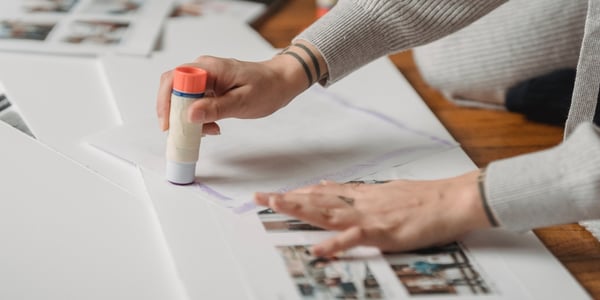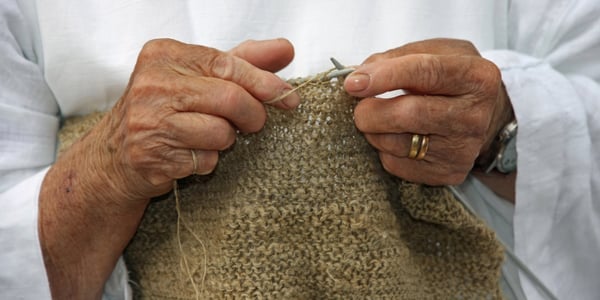Setting wellness goals is a great motivator to improve your health, whether mental, physical, or...


Setting wellness goals is a great motivator to improve your health, whether mental, physical, or...

Retirement is a time in our lives when we finally have the chance to enjoy the fruits of our labor...

Retirement, a much-anticipated phase of life, holds the promise of relaxation, freedom, and the...

Living with arthritis can pose significant challenges, especially when it comes to maintaining the...
Rediscovering Your Hobbies: How to Reignite Your Passion in Retirement
Retirement is a time for relaxation and enjoyment, but it can also be a time of self-discovery and rediscovery. For many retirees, this means reigniting their passions and hobbies that may have been put on hold during their working years. Rediscovering your hobbies can be a great way to stay engaged, motivated, and fulfilled in your retirement. However, getting started can be challenging, especially if you haven't pursued your hobbies in a while. In this blog post, we'll explore some tips and strategies for reigniting your passion for hobbies in retirement and provide practical advice to help you rediscover your passions and stay engaged throughout your retirement.
How to Rediscover Your Favorite Hobbies
Making a list of your hobbies can be a fun and helpful exercise that helps you get a clearer picture of what activities you enjoy and what you want to explore further. Whether it's painting, photography, cooking, gardening, or playing an instrument, writing down your hobbies can help you prioritize your interests and determine which ones you want to focus on first.
When making your list, it can also be helpful to write down why you enjoy each hobby and what you hope to achieve by pursuing it. This can help you stay motivated and inspired as you work on your hobbies and give you a sense of purpose and direction.
Assessing your resources is an important step in rediscovering your hobbies. This might include physical resources, such as equipment or space, as well as time and financial resources. Understanding what resources you have available can help you set realistic goals and create a plan that fits within your means.
For example, if you want to take up woodworking as a hobby, you'll need the necessary tools and space to work on your projects. You'll also need to budget for any additional materials or classes you might need. By taking stock of your resources, you can create a plan that is realistic and achievable and avoid getting discouraged by unrealistic expectations.
When rediscovering your hobbies, it's recommended to start small and work your way up. This can help you build confidence and momentum and avoid feeling overwhelmed or discouraged. Starting small might mean dedicating a few minutes each day to your hobby or working on a smaller project before tackling something more complex.
For example, if you want to start painting again after many years, you might begin by practicing basic brushstrokes or working on a small canvas. By starting small, you can build up your skills and confidence over time and avoid feeling discouraged by any setbacks or mistakes.
Setting goals can be a powerful motivator when rediscovering your hobbies. Goals can help you stay focused, track your progress, and give you a sense of accomplishment when you achieve them. When setting goals, it's important to make them specific, measurable, and achievable and to track your progress regularly to stay on track.
For example, if you want to improve your cooking skills, you might set a goal to learn a new recipe each week or to practice a particular technique until you feel comfortable with it. By setting specific goals and tracking your progress, you can stay motivated and see tangible improvements in your skills over time.
Finding a community of people who share your interests can be a great way to rediscover your hobbies and stay motivated. Whether joining a local club, attending a meetup group, or connecting with others online, being part of a community can help you learn new skills, get feedback on your work, and share your passion with others.
It can also be a great way to make new friends and socialize, which can be especially important for retirees looking for ways to stay engaged and active.
Trying something new can be a great way to expand your horizons and rediscover your hobbies. Whether it's a new craft, sport, or hobby, stepping outside of your comfort zone can be a great way to challenge yourself and keep things interesting.
It can also be a great way to learn new skills and discover new passions that you never knew you had. By trying new things, you can find new communities of people who share your interests and open up new opportunities for growth and exploration.
Rediscovering your hobbies can be a rewarding but sometimes frustrating process. Be patient with yourself, and remember that progress takes time. Whether you're learning a new skill or working on a project, it's important to stay focused on the process and not get discouraged by setbacks or mistakes.
Remember that hobbies are meant to be enjoyable and fulfilling, so try to stay present and enjoy the journey as much as the destination.
Creating a schedule can be a great way to stay organized and make time for your hobbies. Whether it's dedicating a certain time each day or week to your hobby or setting aside longer periods of time for bigger projects, having a schedule can help you stay on track and make progress toward your goals.
It can also be a great way to create a sense of routine and structure in your retirement, which can be especially important for those who may be adjusting to a new lifestyle or routine.
Investing in yourself and your hobbies can be a great way to stay motivated and improve your skills. This might mean taking a class, purchasing new equipment or supplies, or attending a workshop or conference.
By investing in yourself, you can also show yourself that your hobbies are worth pursuing and that you are committed to your personal growth and development.
Technology can be an excellent tool for rediscovering your hobbies and staying connected with others who share your interests. Whether it's using online tutorials or videos to learn new skills or connecting with others on social media or online forums, technology can help you stay engaged and connected with your hobbies.
It can also be a great way to connect with younger generations and learn about new trends or innovations in your hobbies.
It's important to stay flexible and open-minded when rediscovering your hobbies. Your interests and passions may change over time, and it's important to be open to new opportunities and experiences.
By staying flexible and embracing new challenges and opportunities, you can continue to grow and evolve as a person and find new ways to stay engaged and fulfilled in your retirement.
Incorporating your hobbies into daily life can be a great way to stay engaged and motivated. This might mean finding ways to incorporate your hobby into your daily routine, such as taking a daily walk or practicing your hobby for a certain amount of time each day.
By making your hobbies a regular part of your daily routine, you can stay connected with your passions and keep your skills sharp. It can also be a great way to add variety and fun to your daily life.
Learning is a vital part of staying engaged and motivated in your hobbies. Whether learning new techniques, trying new projects, or attending workshops or classes, continuing to learn can help you stay motivated and inspired. It can also be a great way to improve your skills and challenge yourself, and it may open up new opportunities or ideas for your hobbies.
It's important to celebrate your achievements, no matter how big or small they may be. Whether you've completed a project, learned a new skill, or simply made progress toward your goals, taking the time to celebrate your achievements can be a great way to stay motivated and encouraged.
Celebrating your achievements is also a great way to recognize your hard work and dedication. It can also help you stay focused on your hobbies and goals. It can also be a great way to build confidence and self-esteem, which can be especially important for retirees who may be looking for ways to stay engaged and fulfilled in their daily lives.
Reigniting your passion for hobbies in retirement can be a wonderful way to stay engaged, motivated, and fulfilled. Whether you're picking up an old hobby or trying something new, there are many strategies you can use to rediscover your passions and stay committed to your hobbies. Remember, retirement is a time to enjoy the things you love, and by rediscovering your hobbies, you can make the most of this special time in your life.
Living50+